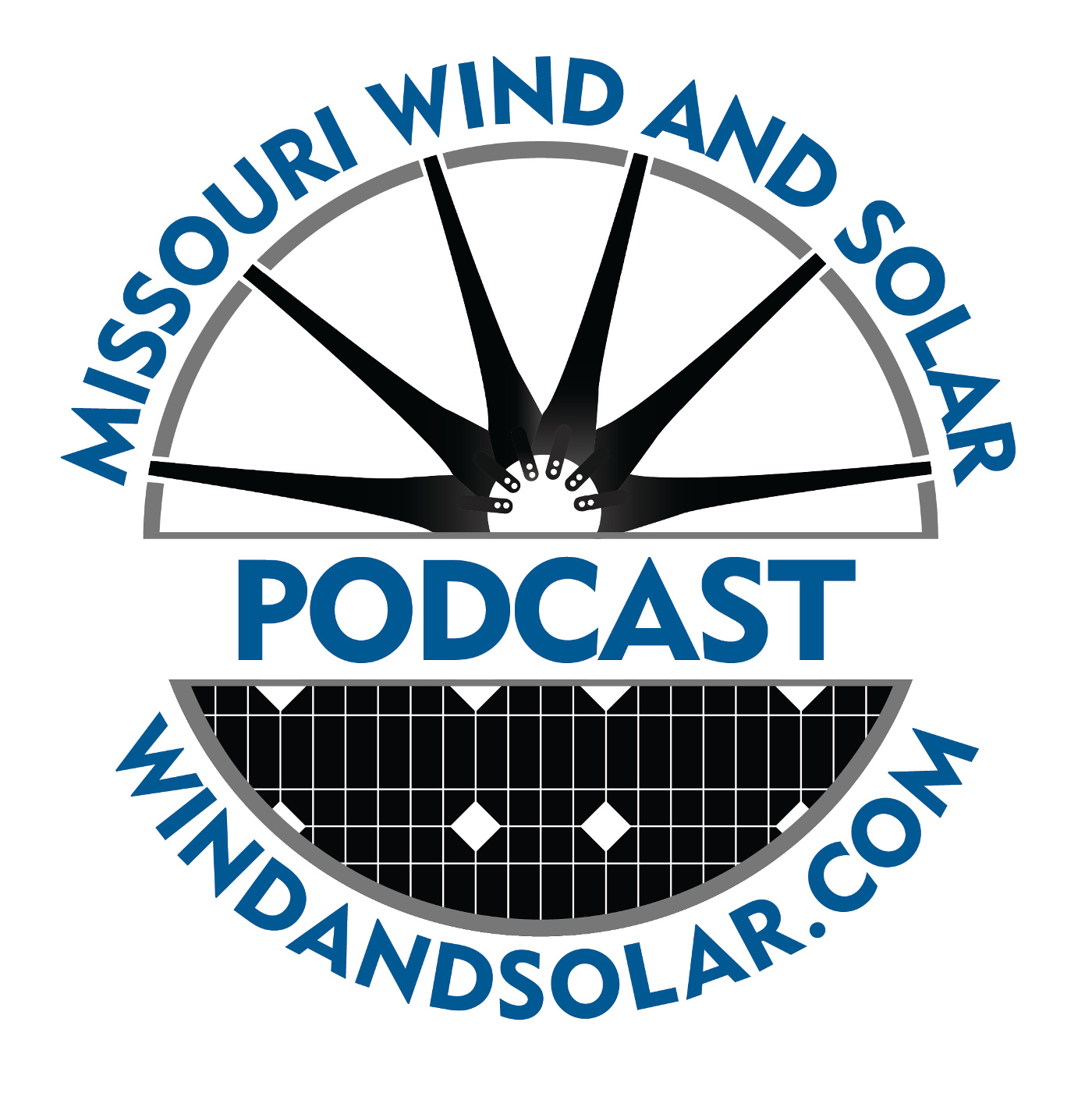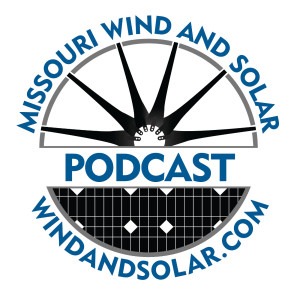
39.9K
Downloads
117
Episodes
Alternative Energy Do-It-Yourself. Learn tips about installing your own small wind turbine or solar panels. Wes and David from Missouri Wind and Solar give advice and discuss commonly asked questions about back up power including battery bank wiring and maintenance, residential wind turbine towers, and PV solar arrays. Make sure you get the best power production from your off-grid or grid-tie system by planning and installing right from the start. Selling DIY renewable energy systems since 2008, Missouri Wind and Solar is located in the United States and is run on wind and solar. Want to see it in action? Stop by our store in Seymour, Missouri and we'll give you a tour.
Episodes

Tuesday Feb 28, 2023
Are Lithium-Ion Batteries Everything They’re Cracked Up To Be?
Tuesday Feb 28, 2023
Tuesday Feb 28, 2023
On today's episode, Wes and David bring Missouri Wind and Solar's head of R&D, Sam Buffington, in to discuss lithium-ion batteries. Lithium-ion batteries have revolutionized the off-grid industry and are now widely used in electric vehicles. While they offer a high energy density and long lifespan compared to other types of batteries, there are some concerns about their safety and sustainability. There have been incidents of lithium-ion batteries overheating or catching fire. However, advancements in battery technology and production methods are aimed at addressing these issues and improving the safety and sustainability of lithium-ion batteries. Despite the challenges, many experts believe that lithium-ion batteries will continue to play a crucial role in the transition to a more sustainable energy future.

Tuesday Feb 21, 2023
How Does My Battery Technology Handle Cold Weather?
Tuesday Feb 21, 2023
Tuesday Feb 21, 2023
On today's episode, Wes and David wrangle owner Crystal Shank into a discussion of battery technology and the impact of cold weather.
Lithium-ion batteries have a relatively stable voltage output and are less affected by cold temperatures compared to lead-acid batteries. However, the cold weather can reduce the capacity and efficiency of lithium-ion batteries, leading to shorter battery life and reduced performance. To minimize the effects of cold temperatures, lithium-ion batteries must be stored and used within a specified temperature range and protected from extreme cold weather.
Lead-acid batteries, on the other hand, are more susceptible to cold temperatures and can experience reduced capacity and reduced efficiency in cold weather. In extreme cold weather conditions, lead-acid batteries can freeze and become damaged, which can cause them to lose capacity and performance permanently. To prevent damage, lead-acid batteries must be kept warm in cold weather, either by using a battery blanket or by keeping them in a warm area.
Absorbed Glass Mat (AGM) batteries are a type of lead-acid battery that are designed to be more resistant to cold temperatures. AGM batteries use a special glass mat separator that holds the electrolyte in place and prevents it from freezing in cold weather. As a result, AGM batteries have a better performance in cold weather compared to traditional lead-acid batteries. However, they are still affected by cold temperatures, and their capacity and efficiency can be reduced in extreme cold weather conditions.

Tuesday Feb 14, 2023
Update On The Battery Situation
Tuesday Feb 14, 2023
Tuesday Feb 14, 2023
On today's episode, Wes and David wrangle owner, Crystal Shank, into the podcast to review the update on the impact on batteries caused by California's NEM 3.0 regulations.
California's NEM 3.0 regulations will have a significant impact on the battery supply. NEM 3.0 sets new standards for energy storage systems, including batteries, and requires that these systems meet certain safety and performance requirements. The regulations are designed to improve the safety and reliability of energy storage systems and ensure that they meet the growing demand for clean energy in California.
To comply with the NEM 3.0 regulations, battery manufacturers must upgrade their products and production processes to meet the new standards. This may result in higher costs and longer lead times for battery suppliers, as they invest in new equipment and processes to meet the new regulations. Additionally, some suppliers may face challenges in sourcing materials and components that meet the new standards, which could also impact the battery supply.
NEM 3.0 will likely result in changes to the battery supply chain world-wide, including higher costs, longer lead times, and potential disruptions in the supply chain. However, the regulations are touted to improve the safety and reliability of energy storage systems, which is critical for the growth of clean energy in the state.

Tuesday Feb 07, 2023
What Do I Need To Take Into Consideration When Adding To My System?
Tuesday Feb 07, 2023
Tuesday Feb 07, 2023
Wes and David discuss what you need to consider when looking at adding to or upgrading your system.
There are several considerations that need to be taken into account to ensure that the new components are compatible with your existing setup and perform as expected.
You need to consider the capacity of your existing system and the additional energy needs that you have. This will help you determine the size and capacity of the new components needed.
You need to consider the compatibility of the new components with your existing equipment, including the solar panels, inverter, and battery storage system. This will ensure that the new components work seamlessly with your existing setup and that you can maximize the efficiency and performance of your solar system.
You also need to consider the maintenance requirements of the new components, including regular cleaning and monitoring. This will ensure that your solar system continues to perform optimally and that you can avoid potential problems and costly repairs.
Finally, you should consult with a solar professional who can provide expert advice and guidance on the best options for adding on to your existing solar system. This will help you make informed decisions and ensure that your investment in clean energy pays off.

Tuesday Jan 31, 2023
What The Heck Is Peukert’s Law And How Does It Impact Your Batteries?
Tuesday Jan 31, 2023
Tuesday Jan 31, 2023
Wes and David discuss how Peukert's law impacts your batteries in your alternative energy system.
From Wikipedia...
Peukert's law, presented by the German scientist Wilhelm Peukert in 1897, expresses approximately the change in capacity of rechargeable lead–acid batteries at different rates of discharge. As the rate of discharge increases, the battery's available capacity decreases, approximately according to Peukert's law.

Tuesday Jan 24, 2023
Can Wind Effectively Supplement My Solar?
Tuesday Jan 24, 2023
Tuesday Jan 24, 2023
David and Wes talk about how wind power is the perfect supplement to your solar system.

Tuesday Jan 17, 2023
How Bad Is About To Get With Batteries?
Tuesday Jan 17, 2023
Tuesday Jan 17, 2023
Wes and David discuss the potential crisis headed our way with regard to being able to get batteries.

Tuesday Jan 10, 2023
How Do I Make Sure I Have Enough Energy During Winter?
Tuesday Jan 10, 2023
Tuesday Jan 10, 2023
Wes and David discuss the processes need to make sure you have adequate energy production during the winter.

Tuesday Jan 03, 2023
Why Can I Not Use A Car Battery?
Tuesday Jan 03, 2023
Tuesday Jan 03, 2023
Wes and David talk about why a car battery is not the best battery you can get for an alternative energy project.

Tuesday Dec 27, 2022
What is the difference between high and low frequency inverters?
Tuesday Dec 27, 2022
Tuesday Dec 27, 2022
Inverters are classified as either low or high frequency. Our head of research and development, Sam Buffington, discusses the pros and cons of each.
